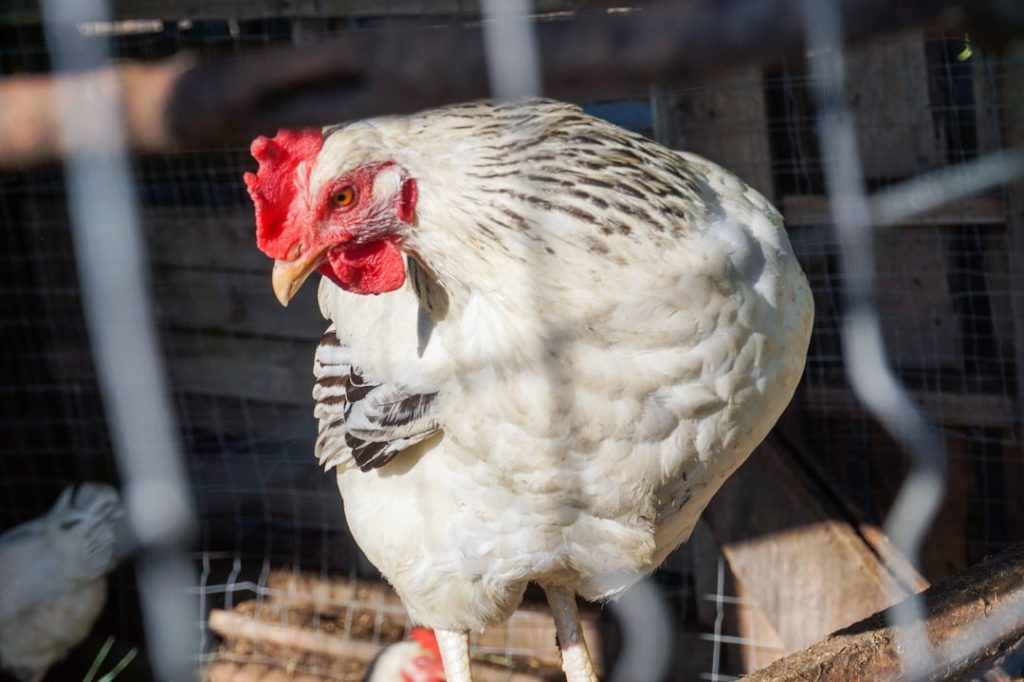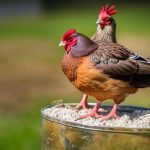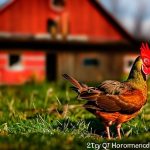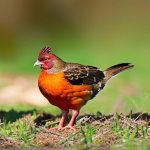Chickens are social animals with a hierarchical structure. They possess innate behaviors such as foraging, scratching the ground, and roosting in elevated positions. Understanding these behaviors is essential for creating an appropriate environment.
Chickens can display territorial tendencies and may exhibit aggression towards other animals or humans if they feel threatened. Providing adequate space for roaming and establishing a pecking order within the flock is crucial. Chickens are sensitive to environmental changes and can experience stress due to excessive noise, overcrowding, or limited access to food and water.
By comprehending their behavior patterns, one can design a suitable living area that fulfills their needs and minimizes undesirable behaviors like pecking or aggression. Chickens are naturally inquisitive and may be drawn to shiny objects, often attempting to peck at items that capture their attention. This curiosity can potentially lead them to hazardous areas or cause them to ingest harmful substances.
Recognizing this trait can aid in implementing effective barriers and deterrents to ensure their safety within designated areas. A thorough understanding of chicken behavior enables the creation of an environment that promotes their well-being and reduces the risk of unwanted behaviors or exposure to potential dangers.
Table of Contents
- 1 Creating a designated area for chickens
- 2 Implementing barriers and deterrents
- 3 Using natural repellents
- 4 Properly storing food and waste
- 5 Regularly cleaning and maintaining the area
- 6 Seeking professional advice if necessary
- 7 FAQs
- 7.1 What are some natural ways to keep chickens away from the house?
- 7.2 Why is it important to keep chickens away from the house?
- 7.3 Are there any commercial products available to keep chickens away from the house?
- 7.4 What are some common mistakes to avoid when trying to keep chickens away from the house?
- 7.5 How can I prevent chickens from roosting on my house or other structures?
Key Takeaways
- Chickens are social animals and their behavior can be influenced by their environment and interactions with other chickens.
- Designating a specific area for chickens can help in managing their behavior and keeping them contained.
- Barriers such as fences and deterrents like noise or motion-activated devices can help in keeping chickens in their designated area.
- Natural repellents like citrus peels or herbs can be used to deter chickens from certain areas.
- Properly storing food and waste can help in preventing chickens from accessing and making a mess.
- Regular cleaning and maintenance of the chicken area is important for their health and well-being.
- Seeking professional advice from a veterinarian or animal behaviorist can be beneficial in managing chicken behavior and living conditions.
Creating a designated area for chickens
Designing the Perfect Chicken Area
Creating a designated area for chickens is essential for their safety and well-being. This area should provide enough space for them to roam, scratch, and forage for food while also offering protection from predators and the elements. The designated area should include a coop for roosting and nesting, as well as a fenced-in outdoor space for them to explore.
Coop and Outdoor Space Requirements
The coop should be well-ventilated, secure from predators, and provide enough space for each chicken to roost comfortably. The outdoor space should be enclosed with a sturdy fence to prevent chickens from wandering off and to keep out potential predators such as foxes, raccoons, or birds of prey. In addition to providing a safe and secure environment, the designated area should also include access to food and water.
Meeting Chickens’ Dietary Needs
Chickens require a balanced diet that includes grains, seeds, fruits, and vegetables, as well as access to clean water at all times. The designated area should have feeding and watering stations that are easily accessible to the chickens while also being protected from pests and vermin.
Benefits of a Well-Designed Chicken Area
By creating a suitable environment, you can ensure the health and well-being of your chickens while also reducing the likelihood of unwanted behavior or encounters with potential hazards.
Implementing barriers and deterrents
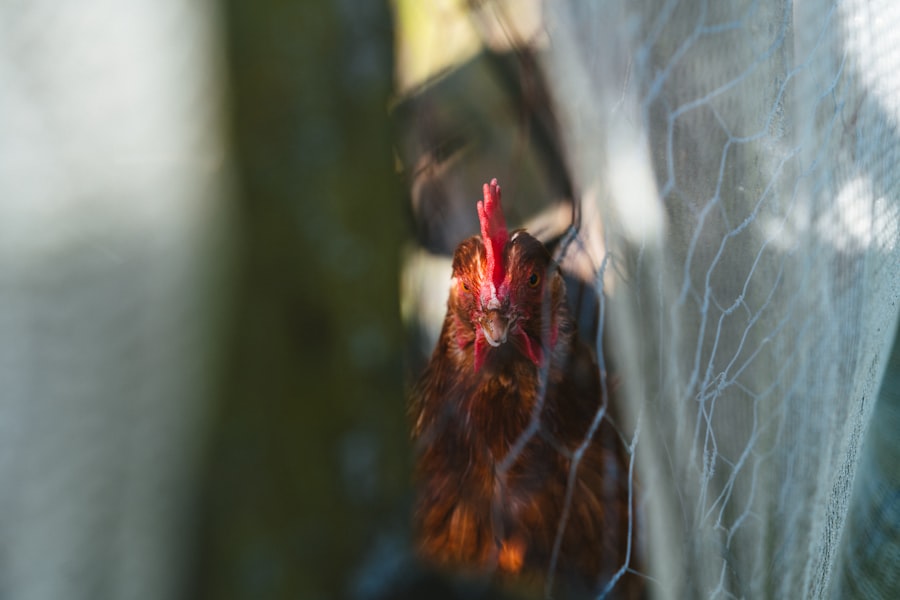
Implementing barriers and deterrents is essential in keeping chickens safe and secure within their designated area. Chickens are naturally curious creatures and may attempt to explore areas that pose potential dangers or hazards. By implementing barriers such as fences or netting, you can prevent chickens from wandering off into areas where they may encounter predators or consume harmful substances.
The barriers should be sturdy and secure to withstand attempts by predators to break through and should also be tall enough to prevent chickens from flying over. In addition to physical barriers, deterrents such as noise or motion-activated devices can be effective in keeping predators at bay. These deterrents can startle potential threats and discourage them from approaching the designated area.
Implementing barriers and deterrents is crucial in creating a safe and secure environment for chickens, reducing the likelihood of encounters with predators or potential hazards.
Using natural repellents
Using natural repellents can be an effective way to keep pests and vermin away from the designated area for chickens. Natural repellents such as herbs, essential oils, or citrus peels can be used to deter pests such as flies, mosquitoes, or rodents. These natural repellents can be placed around the coop and outdoor space to create a barrier that pests are less likely to cross.
Additionally, planting herbs such as lavender, mint, or rosemary around the designated area can help repel pests while also providing a pleasant aroma for the chickens. In addition to using natural repellents, maintaining cleanliness and proper waste management can also help in reducing pest infestations. Regularly cleaning the coop and outdoor space, as well as properly storing food and waste, can help in preventing pests from being attracted to the area.
Using natural repellents in combination with proper waste management can create a more pleasant environment for chickens while also reducing the likelihood of pest infestations.
Properly storing food and waste
Properly storing food and waste is essential in maintaining a clean and healthy environment for chickens. Food should be stored in secure containers that are resistant to pests and vermin. This will prevent pests from accessing the food supply and reduce the likelihood of infestations in the designated area.
Additionally, food should be stored in a cool, dry place to maintain its freshness and nutritional value. Waste management is also crucial in maintaining a clean environment for chickens. Waste such as droppings, bedding, or spoiled food should be regularly removed from the coop and outdoor space to prevent the buildup of odors and bacteria.
Proper waste management not only creates a more pleasant environment for chickens but also reduces the likelihood of pest infestations.
Regularly cleaning and maintaining the area
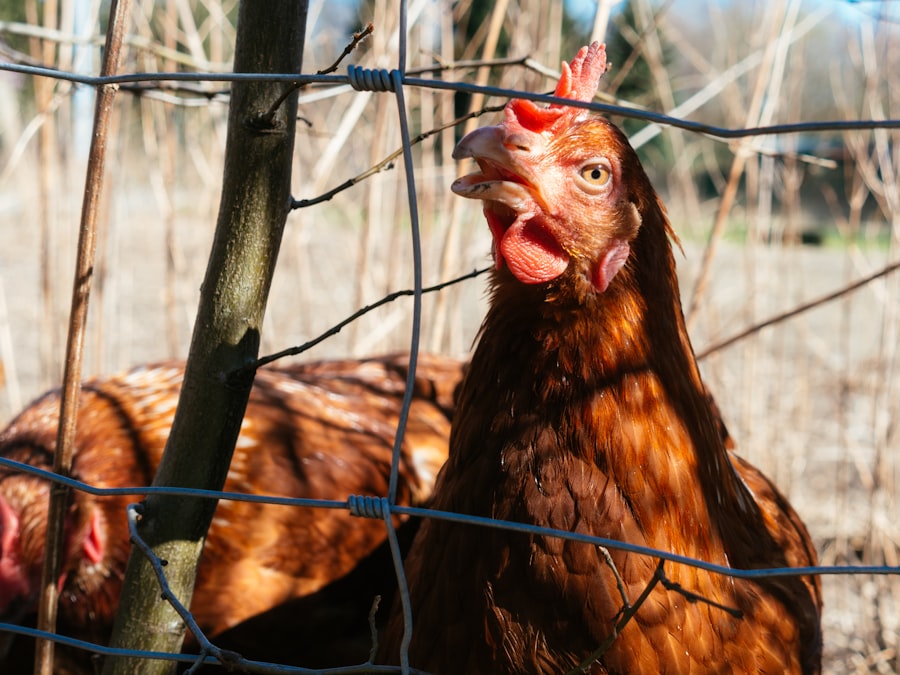
Cleaning the Coop
The coop should be cleaned on a regular basis to remove droppings, soiled bedding, and any spoiled food. This will help in preventing the buildup of odors and bacteria while also reducing the likelihood of pest infestations.
Maintaining the Outdoor Space
Additionally, the outdoor space should be regularly inspected for any potential hazards or areas that may need repair. Maintaining the area also involves providing enrichment activities for the chickens such as perches, dust baths, or toys.
Promoting Health and Well-being
These activities can help in reducing stress and boredom while also promoting natural behaviors such as scratching and pecking. Regularly cleaning and maintaining the designated area is crucial in creating a safe and healthy environment for chickens while also reducing the likelihood of unwanted behavior or encounters with potential hazards.
Seeking professional advice if necessary
Seeking professional advice is important if you encounter any challenges or issues with creating a designated area for chickens. A professional such as a veterinarian or experienced poultry keeper can provide valuable insights and recommendations on how to address specific concerns related to the health and well-being of chickens. They can offer guidance on proper nutrition, disease prevention, or behavioral issues that may arise within the flock.
Additionally, seeking professional advice can help in identifying potential hazards or risks within the designated area that may need to be addressed. A professional can provide recommendations on how to improve the environment for chickens while also ensuring their safety and security. Seeking professional advice if necessary is crucial in addressing any concerns related to the care and management of chickens while also promoting their health and well-being.
In conclusion, understanding the behavior of chickens is crucial in creating a suitable environment for them while also reducing the likelihood of unwanted behavior or encounters with potential hazards. Creating a designated area for chickens involves careful planning and consideration of their needs for space, shelter, and access to food and water. Implementing barriers and deterrents is essential in keeping chickens safe and secure within their designated area while also reducing the likelihood of encounters with predators or potential hazards.
Using natural repellents can be an effective way to keep pests and vermin away from the designated area while also promoting a more pleasant environment for chickens. Properly storing food and waste is essential in maintaining a clean and healthy environment for chickens while also reducing the likelihood of pest infestations. Regularly cleaning and maintaining the designated area is crucial in promoting the health and well-being of chickens while also reducing the likelihood of unwanted behavior or encounters with potential hazards.
Seeking professional advice if necessary is important in addressing any concerns related to the care and management of chickens while also promoting their health and well-being.
If you’re looking for more information on where to put your chicken coop, check out this article on where to put chicken coop. It provides helpful tips on finding the best location for your coop to keep your chickens happy and away from your house.
FAQs
What are some natural ways to keep chickens away from the house?
Some natural ways to keep chickens away from the house include using strong-smelling herbs like lavender or mint, creating physical barriers such as fences or chicken wire, and using motion-activated sprinklers to deter them.
Why is it important to keep chickens away from the house?
Keeping chickens away from the house is important to prevent damage to property, reduce the risk of spreading diseases, and minimize noise and odor disturbances.
Are there any commercial products available to keep chickens away from the house?
Yes, there are commercial products such as chicken repellent sprays, ultrasonic devices, and visual deterrents like scarecrows or reflective tape that can help keep chickens away from the house.
What are some common mistakes to avoid when trying to keep chickens away from the house?
Common mistakes to avoid include using harmful chemicals or poisons, neglecting to secure food sources, and not addressing the root cause of why the chickens are attracted to the house in the first place.
How can I prevent chickens from roosting on my house or other structures?
To prevent chickens from roosting on your house or other structures, you can install roosting bars in a designated area away from the house, use deterrents like spikes or netting, and regularly remove any nesting materials.
Meet Walter, the feathered-friend fanatic of Florida! Nestled in the sunshine state, Walter struts through life with his feathered companions, clucking his way to happiness. With a coop that’s fancier than a five-star hotel, he’s the Don Juan of the chicken world. When he’s not teaching his hens to do the cha-cha, you’ll find him in a heated debate with his prized rooster, Sir Clucks-a-Lot. Walter’s poultry passion is no yolk; he’s the sunny-side-up guy you never knew you needed in your flock of friends!

